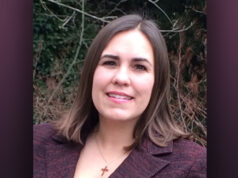Sixty percent of adults over the age of 65 will require long-term care at some point in their lives. Having a long-term care insurance policy does not ensure that all costs will be paid. Most insurance policies, including Medicare, cover only a fraction of the cost of skilled nursing homes, and do not cover most assisted living costs. Long-term care insurance does more to help pay for these expenses due to:
- illness
- accident
- frailty
- dementia
There are two types of long-term care insurance, tax-qualified and non-tax-qualified. Benefits received through a tax-qualified plan are not taxable. Benefits received through a non-tax-qualified plan might be taxed as income. With most non-tax-qualified plans, your Senior parent can start receiving benefits when a doctor decides that regular care is required.
Instead of paying for services directly, most long-term care plans allow Senior’s to select a daily or monthly benefit amount, ranging from $50-$500. Benefit payments support home health care services, assisted living, or residential skilled nursing.
Services
Most long-term care plans:
- have a lifetime maximum for benefits
- cover specific situations, such as facility care
- focus exclusively on services associated with chronic illness or disability
To start receiving benefits from a tax-qualified plan, your Senior parent must lose the ability to perform at least two activities of daily living without some form of assistance such as:
- dressing
- bathing
- eating meals
- toileting
Specialization
Long Term Health Insurance is its own specialty in the world of Insurance. Look for a reputable firm. One that has been around for a long time. Check with the Better Business Bureau once you have identified one of interest to make sure their license is up to date and they are highly rated.
Preparation
- Remember, the older and sicker a person becomes, the more expensive it is to obtain long-term care insurance. Buying a long-term care policy early saves money.
- Be ready to discuss your parent’s current health history and/or prognosis.
- Be familiar with the current health care coverage.
- Time frames for projecting the need for long term care coverage is important.
- Know the monthly budget constraints for this type of insurance.
- If Medicare is involved – know where they start and stop in coverage.
- Understand the level of participation/commitment the family will agree to if long term care is required; assuming this is even an option.
Evaluation
- Describe the various plans and what types of care will be covered in those plans.
- What are the monthly fees? Ancillary fees?
- When can the policy holder start to receive benefits?
- Can the doctor recommend long term care at any time, or is there a list of specific criteria to be met in order to receive payment?
- Do you pay for costs directly or make cash payments to policy holders? If you pay cash, what are your payout plans?
- What is the lifetime maximum for each plan you offer?
- Are your plans tax-qualified?
- Does your coverage have any perks we might be interested in?
Long Term Health Care Insurance Radio Show Segments
- Single? How to Preserve Assets For Retirement
If you’re single, it’s much harder to plan financially in advance for retirement, as there are more options available for married couples. To alleviate worries about finances and aging — or the possibility of an unhealthy retirement where you might face a chronic illness — you may want to research alternative living facilities on your own ahead of time, or prepare irrevocable trusts to preserve assets. Elder law attorney Andrea Lee from Legacy Estate Planning joins Suzanne Newman on the Answers for Elders podcast to talk about various ways single folks can protect their assets for retirement and beyond.
Andrea says, “I have found that frequently single individuals have a whole other set of challenges that they need to face when doing their estate and long term care planning. If there’s a spouse, there are significant things that we can do to preserve assets. And unfortunately, so many single people just don’t have those same resources. And it’s oftentimes a huge stress and a burden for them as they anticipate aging. Hopefully they’ve met with a financial advisor or someone who’s a little bit knowledgeable and developed a budget and a plan to make their money last.
“I have found that frequently single individuals have a whole other set of challenges that they need to face when doing their estate and long term care planning. If there’s a spouse, there are significant things that we can do to preserve assets. And unfortunately, so many single people just don’t have those same resources. And it’s oftentimes a huge stress and a burden for them as they anticipate aging. Hopefully they’ve met with a financial advisor or someone who’s a little bit knowledgeable and developed a budget and a plan to make their money last.
“There’s just so many conflicting priorities. If I had to choose, I would say the most important thing for an individual to do as they age… is always making sure that they have their power of attorney documents in place. I think one of the biggest challenges for single individuals, as well as for many individuals, is choosing your agents. For many married couples, there is an easy default, which is, ‘Hey, I’m incapacitated, it’s my spouse,’ and they feel comfortable they can rely on their spouse. If people have responsible adult children, the logical backup to the spouse are those adult children.
“But there is a huge segment of the population who are unmarried, and maybe they don’t have adult children, or maybe they have adult children, but they don’t have responsible adult children. They don’t have adult children who they are particularly close to, or who they think could act as a an appropriate agent. And then for those individuals, I have found that to be one of the most daunting decisions that they have to overcome. And it actually frequently creates a barrier to them even creating a plan or starting the process.”
Andrea adds, “I do recommend people plan to live to 100. Not many of us make it, but some do. So it’s better to plan for it. But for single people, especially if they are concerned about long term care, I do get that phone call frequently where somebody is saying I have adequate resources to pay for healthy retirement, but I am concerned about unhealthy retirement. I’m concerned about the stroke, I’m concerned about dementia, I’m concerned about ALS, or any type of [chronic illness]… For single people, unfortunately, there are not as many good options if you’re facing incapacity and needing long term care. What’s the priority? And it’s definitely putting in place that financial power attorney, putting in place that health care power of attorney.
“But I would say it’s also being much more conscientious about planning for the future incapacity and ensuring you have adequate resources and adequate plans to pay for that. If people are single, they have adequate resources, we want to look at long term care insurance. Is that a viable option for you? It’s important. It’s essential to have a housing plan in place. It’s essential to sit down and say, you know, if I become incapacitated, what do I want that to look like from a practical standpoint? Because you might not have a spouse to step in and make those decisions for you. And so the question is, ‘hey, can someone take care of me at home? Do I have the resources to hire someone if I don’t have family members who can step in? And if neither of those are true, what are the alternatives that I would feel comfortable with?’
“So the beauty is there are a lot of options available to single people, but don’t wait to plan. Sit down with an estate planning, an elder law attorney. Sit down with your family members, and have that hard conversation about what can people do for you, what are their boundaries.”
Learn more:
Check out our affiliate podcast Alzheimer’s Speaks.
- How to Prepare Financially for the Unknown
Finance expert David Phillips joins Suzanne to talk about how to anticipate the future by putting a finance plan in place to take advantage of factors that we can control, and account for risks such as longevity, running out of money, potential inflation, taxes, and the needs of long-term care.
David says, “Preparing for the unknown is probably the most delicate thing that we can do. There are some factors that we can actually control, we can actually prepare for it. For example, we know that the longer we live there’s gonna be a market correction. The longer we live, things are going to change, and it’s called the longevity risk. So the market will change somewhere along the line. So we have to prepare for that. So how do we do that? We pull some of our money off of the risks table and we put it into guaranteed sources of income or guaranteed investments. Another longevity risk is we live too long, we run out of money. So we want to set up plans where we can have guaranteed income.
“Our Social Security is getting taxed. I think everybody knows that they’re surprised when it’s taxed, because we pay taxes all along the way to get the Social Security, but it gets taxed as well. And then the more money we make, we have to pay Medicare, and the Medicare cost increases the more we make. And health care costs are going through the roof, and healthcare supplemental policies, and all kinds of things like that.
“We have no idea what long-term care is going to do to us. Is it going to be a little thing? Is it going to be a big thing? Is it going to be dementia? Is it going to be Alzheimer’s? The longer we live, the risk increases that this is going to happen to us. Probably the number one thing that we get when people call us is,’ oh my God, my spouse has just been diagnosed with Alzheimer’s. How am I going to pay for my husband’s care, and I’m gonna lose my house, I’m gonna lose everything.” And there are ways in which you can plan now. You can’t do the planning while you’re in a nursing home, so we have to do the prior planning now. Prior planning prevents poor performance. And so let’s plan now.”
To get his books, call David’s office at 888-892-1102, or visit his Estate Planning Specialists website at https://epmez.com/. Subscribe to the monthly Generational Wealth Strategies newsletter at https://www.generationalwealthnewsletter.com/. Answers for Elders listeners get a discount.
Learn more:
* Generational Wealth Strategies newsletter: https://www.generationalwealthnewsletter.com/
* David T. Phillips: https://epmez.com/our-team
* Answers for Elders: https://answersforelders.com/welcome-to-answers-for-elders/Answers for Elders is part of the Senior Resource Network: https://www.seniorresource.com/
Check out our affiliate podcast Alzheimer’s Speaks: https://alzheimersspeaks.com/ - How to Downsize with an Expensive Home
Finance expert David Phillips joins Suzanne to talk about how a family owning a million-dollar home can downsize most effectively, maximizing their money for the future. He recommends investing some of the proceeds from the sale into an annuity with guaranteed income rider.
“Any time we sell something that we have gains, we’re going to have to pay taxes, and right now, the capital gains tax rate is the lowest it’s been in about 50 years. Depending on what state we live in. The most common idea right now is to take the money after the tax and secure guaranteed income for you for the rest of your life. Let’s say we downsize and we end up with $100,000. A 65 year old could put in $100,000 and jointly create $6,000 a month in income for the rest of both lives. If we’re just by ourselves, a male $7,300 a female $7,000 a month. It’s called a fixed indexed annuity with guaranteed income. Call Todd here at my office and say, hey, I want to look at guaranteed income for the rest of my life, and then he’ll show you the different options that are available.
Some Baby Boomers are downsizing to a continuing care retirement community, or CCRC. Suzanne asked, “Let’s say you get a million dollars for your house and you end up having an entrance fee to a CCRC of 500,000. How does that work?” David explains, “You’re just basically converting your cash into a place where you don’t have to have income to satisfy expenses, because you’re done. You still have your $400,000 that you can live off of plus your social security, which can actually pay your community fee, which is not much when you live in a CCRC.”
“One of the things you can do to prepare is get a long term care policy right now, while you can. You have to look at all the options and that’s one of the options. Take some of the money and turn it into – we call it leverage care solutions, or asset-based care plans. I wrote a book about that called “Leveraged Care Solutions,” and they can get that through our website.”
David mentions the newly-updated fourth edition of his book, “The Ten Most Common Estate Planning Mistakes And How to Avoid Them.”
To get his books, call David’s office at 888-892-1102, or visit his Estate Planning Specialists website at https://epmez.com/. Subscribe to the monthly Generational Wealth Strategies newsletter at https://www.generationalwealthnewsletter.com/. Answers for Elders listeners get a discount.
Subscribe to the monthly Generational Wealth Strategies newsletter at https://www.generationalwealthnewsletter.com/. Answers for Elders listeners get a discount.
Call David’s office at 888-892-1102, or visit his Estate Planning Specialists website at https://epmez.com/.
Learn more:
* Generational Wealth Strategies newsletter: https://www.generationalwealthnewsletter.com/
* David T. Phillips: https://epmez.com/our-team
* Answers for Elders: https://answersforelders.com/welcome-to-answers-for-elders/Answers for Elders is part of the Senior Resource Network: https://www.seniorresource.com/
Check out our affiliate podcast Alzheimer’s Speaks: https://alzheimersspeaks.com/ - Senior Finances and Downsizing
Finance expert David Phillips joins Suzanne to talk about finances in the face of a new downsizing trend among Baby Boomers. It’s estimated that 54% of Baby Boomers in the U.S. will downsize and simplify their finances between 2024 and 2026. By 2030, Boomers will make up 35-40% of the country’s population. David talks about how his firm helps people make choices during this process.
David says, “The biggest problem is what’s called the longevity issues. How long are we gonna live? We don’t know that, we don’t have a crystal ball. So we have to kind of play both sides of the coin. We don’t want to leave our family destitute. We don’t want to live out our days in a long-term care facility, we’d rather stay at home if we could. And we also want to make sure that if we pass early that our spouse is taken care of, and our family. A lot of folks really want to not only leave a legacy, a personal legacy and memories and whatnot, but we also want to leave a financial legacy. I do, and I have 12 grandkids, and I wanna make sure that they’re adequately taken care of.”
He adds, “We ought to make sure that if we do leave stuff behind, that we don’t leave confusion behind. And at a time when we want to create love and harmony with our family, if we don’t plan, we leave confusion, and create the worst emotions in the human family.”
To get his books, call David’s office at 888-892-1102, or visit his Estate Planning Specialists website at https://epmez.com/. Subscribe to the monthly Generational Wealth Strategies newsletter at https://www.generationalwealthnewsletter.com/. Answers for Elders listeners get a discount.
Call David’s office at 888-892-1102, or visit his Estate Planning Specialists website at https://epmez.com/.
Learn more:
* Generational Wealth Strategies newsletter: https://www.generationalwealthnewsletter.com/
* David T. Phillips: https://epmez.com/our-team
* Answers for Elders: https://answersforelders.com/welcome-to-answers-for-elders/Answers for Elders is part of the Senior Resource Network: https://www.seniorresource.com/
Check out our affiliate podcast Alzheimer’s Speaks: https://alzheimersspeaks.com/ - Asset Management Example for Long Term Care
There are different ways you can remain solvent in your aging years, and there are techniques to maintain and preserve assets. Estate planning specialist David T. Phillips joins Suzanne to talk about the three types of leveraged care solutions and to provide an example of how they work. The three types are the Long Term Care Annuity, the Life Legacy/LTC Combo Strategy, and the Return of Premium LTC plan.
David says, “The first one’s an annuity, expands three times if you need care. If you don’t need care, your family gets the annuity money back. The second one is the life insurance policy. And the life insurance policy has a long term care writer on it. And if you need long term care, you take 2% or 4% of that life insurance benefit, and you use that for care. The third option is called the return premium long term care strategy, and I kind of like this one. I like all of them, my wife likes the second one. I personally like the third one a little bit better, because it has an inflation writer on it.”
David provides an example of the Life Legacy/LTC Combo Strategy. A 65 year old male repositions $100,000, making it immediately worth $431,000. Because we added the 3% inflation rider, it will grow to $755k, or a monthly benefit of $9,736, for 72 months.
David adds, “If we are healthy enough and have the means, we all should have a leveraged care solution plan in our estate plan. There is no debate. We need to quit being selfish. You can spread your deposit over 5, 10 or 15 years. If you itemize on your tax return you can tax deduct a portion of the transfer. The younger you are when you reposition your investment the better, because you get more benefit and it is easier to qualify. Only a Long-Term Care Annuity is available after age 80, until age 85.”
Answers for Elders listeners can receive a free copy of David’s special report Leveraged Care Solutions: Answers to Today’s Long-Term Care Crisis, and other free Special Reports, when you subscribe to the “Generational Wealth Strategies” newsletter. Answers for Elders listeners can subscribe at a discounted fee of $77 a year, a $172 savings. Subscribe here to get the discounted rate: https://www.generationalwealthnewsletter.com/offer/gws-answers-for-elders-2
David’s office is at 888-892-1102, or visit his Estate Planning Specialists website at https://epmez.com/.
Learn more:
* David T. Phillips: https://epmez.com/our-team
* Generational Wealth Strategies newsletter: https://www.generationalwealthnewsletter.com/
* The Vitality Revolution podcast series: https://answersforelders.com/vitality-revolution/
* Humana: https://www.humana.com/
* Answers for Elders: https://answersforelders.com/welcome-to-answers-for-elders/Hear more podcasts about financial wellness at https://answersforelders.com/financial-wellness
Answers for Elders is part of the SeniorResource Network: https://www.seniorresource.com/
Check out our affiliate podcast Alzheimer’s Speaks: https://alzheimersspeaks.com/ - Asset Management for Long Term Care
According to AARP, 90% of Seniors would prefer to be cared for in their homes. What have seniors done to make sure this happens? Estate planning specialist David T. Phillips joins Suzanne to talk about long term care strategies to make sure you have care in your later life.
The solution to the long-term care crisis is a relatively new approach to long-term care insurance, known as leveraged care solutions, a.k.a. asset-based care plans. It’s viable so long as you have the means. The concept is simple: With a leveraged care solution, you reposition an asset today from your left pocket to your right pocket, and it immediately it is valued three times greater than the sum you transferred. You leveraged each deposited dollar at a minimum of three times. If you don’t trigger the benefit, your family inherits the money you transferred.
David explains the three types of Leveraged Care Solutions: the Long Term Care Annuity, the Life Legacy/LTC Combo Strategy, and the Return of Premium LTC plan.
David says, “There’s some options that you can have. You can have an annuity option, that as the annuity grows, so does the long term care benefit. So instead of being three times, it could be four times or five times as the annuity grows. If you never use the long term care benefit, the money that you transferred into it goes to your beneficiaries. So it’s not like it’s money down a rat hole that you’re never going to see. Your kids are gonna actually inherit that money.
“The second option is called the life legacy option, where you use a life insurance policy. And let’s say the life insurance policy is a half a million dollar policy, and you take 2% of that, and you use that for your care per month for 50 months. So 2% of $500,000 would be $10,000 a month that would be used for your care, tax free. All of these benefits, by the way, are income tax free. And that benefit then goes for your care. Let’s say you used it for 10 months. So 10,000 times 1,000,000, the rest of the money, the 400,000 from that 500,000 goes to your kids, your beneficiary.”
Answers for Elders listeners can receive a free copy of David’s special report Leveraged Care Solutions: Answers to Today’s Long-Term Care Crisis, and other free Special Reports, when you subscribe to the “Generational Wealth Strategies” newsletter. Answers for Elders listeners can subscribe at a discounted fee of $77 a year, a $172 savings. Subscribe here to get the discounted rate: https://www.generationalwealthnewsletter.com/offer/gws-answers-for-elders-2
David’s office is at 888-892-1102, or visit his Estate Planning Specialists website at https://epmez.com/.
Learn more:
* David T. Phillips: https://epmez.com/our-team
* Generational Wealth Strategies newsletter: https://www.generationalwealthnewsletter.com/
* The Vitality Revolution podcast series: https://answersforelders.com/vitality-revolution/
* Humana: https://www.humana.com/
* Answers for Elders: https://answersforelders.com/welcome-to-answers-for-elders/Hear more podcasts about financial wellness at https://answersforelders.com/financial-wellness
Answers for Elders is part of the SeniorResource Network: https://www.seniorresource.com/
Check out our affiliate podcast Alzheimer’s Speaks: https://alzheimersspeaks.com/ - Plan for Long Term Care While You’re Healthy
Most baby boomers haven’t planned for a long term care event, considering that only seven percent of adults over age 50 own any form of long term care insurance. Estate planning specialist David T. Phillips joins Suzanne to talk about how to reposition baby boomer assets in order to have funds available for a long term care event. Financial wellness is one of the 8 foundational principles of wellness featured on the Vitality Revolution podcast series sponsored by Humana.
David says, “Only one in 30 adults have a long term care plan in place. What’s going to end up happening is that you’re going to be forced to go on Medicaid. And to get on Medicaid, you have to totally spend down your assets and actually be a pauper and not have any money at all. And then you get to go to the long term care facilities that the government assigns you to go to. You don’t get to stay at home. You have to go where they tell you, you have to do what they tell you to do. In fact, almost half of all long term care benefits today are paid by Medicaid. It means that people are being forced to basically spend down. And right now, you can act. If you have the means, you need to reposition some of those means right now in a leverage care solution.
“If we don’t have the assets shifted and transferred correctly, our kids are gonna have to take care of us, and then our kids are gonna have to take care of the kids, and so on. So it’s really a good idea to get some planning in place now, at least understand what your options are. A lot of people are just scratching their heads saying, ‘Hey, I’m gonna avoid this bus. I don’t want this bus,’ but COVID proved that it can happen to anybody at any time… So you know how vulnerable, how fine the line is, how exposed we are.
“This concept that the insurance industry actually has set up for us is a viable solution. We used to only have the use-it-or-lose-it long term care policies… And now with the leverage care solution, we have three basic options that we can choose from, that are all viable solutions that can help us solve this long term care crisis, not only for us individually but for our families.”
Answers for Elders listeners can receive a free copy of David’s special report Leveraged Care Solutions: Answers to Today’s Long-Term Care Crisis, and other free Special Reports, when you subscribe to the “Generational Wealth Strategies” newsletter. Answers for Elders listeners can subscribe at a discounted fee of $77 a year, a $172 savings. Subscribe here to get the discounted rate: https://www.generationalwealthnewsletter.com/offer/gws-answers-for-elders-2
David’s office is at 888-892-1102, or visit his Estate Planning Specialists website at https://epmez.com/.
Learn more:
* David T. Phillips: https://epmez.com/our-team
* Generational Wealth Strategies newsletter: https://www.generationalwealthnewsletter.com/
* The Vitality Revolution podcast series: https://answersforelders.com/vitality-revolution/
* Humana: https://www.humana.com/
* Answers for Elders: https://answersforelders.com/welcome-to-answers-for-elders/Hear more podcasts about financial wellness at https://answersforelders.com/financial-wellness
Answers for Elders is part of the SeniorResource Network: https://www.seniorresource.com/
Check out our affiliate podcast Alzheimer’s Speaks: https://alzheimersspeaks.com/ - Today’s Long Term Care Crisis
David T. Phillips joins Suzanne to talk about a crisis in Long Term Care and how it is seriously negatively impacting Americans. Financial wellness is one of the 8 foundational principles of wellness featured on the Vitality Revolution podcast series sponsored by Humana.
He says statistically we are woefully unprepared for a medical long-term care event:
* If you are 65 years or older, there is a 72% chance that you will require some type of extended long term care in your lifetime.
* If you are married and over 65, there is a 91% chance that one of you will experience a long term medical event.
* Warning: Long-Term Care isn’t cheap. The national average is over $110,000 a year, and full time Alzheimer’s care in Arizona is over $200,000 a year.
* Currently, 43% of all long-term care expenses are covered by Medicaid. The problem is that Medicaid provides bare-bones coverage, and to qualify you must spend down your assets to virtually nothing.David T. Phillips is a nationally recognized consumer advocate for estate planning, insurance and long term care, with 51 years of experience. He is the author of the bestselling books Estate Planning Made Easy, The Family Bank Strategy, The 10 Most Common Estate Planning Mistakes and How to Avoid Them, and more. He co-authors the extremely helpful estate and financial planning newsletter ”Generational Wealth Strategies.” He is the CEO and founder of Estate Planning Specialists. With clients in every state, his companies have assisted thousands of Americans properly plan their estates.
Answers for Elders listeners can receive a free copy of David’s special report Leveraged Care Solutions: Answers to Today’s Long-Term Care Crisis, and other free Special Reports, when you subscribe to the “Generational Wealth Strategies” newsletter. Answers for Elders listeners can subscribe at a discounted fee of $77 a year, a $172 savings. Subscribe here to get the discounted rate: https://www.generationalwealthnewsletter.com/offer/gws-answers-for-elders-2
David’s office is at 888-892-1102, or visit his Estate Planning Specialists website at https://epmez.com/.
Learn more:
* David T. Phillips: https://epmez.com/our-team
* Generational Wealth Strategies newsletter: https://www.generationalwealthnewsletter.com/
* The Vitality Revolution podcast series: https://answersforelders.com/vitality-revolution/
* Humana: https://www.humana.com/
* Answers for Elders: https://answersforelders.com/welcome-to-answers-for-elders/Hear more podcasts about financial wellness at https://answersforelders.com/financial-wellness
Answers for Elders is part of the SeniorResource Network: https://www.seniorresource.com/
Check out our affiliate podcast Alzheimer’s Speaks: https://alzheimersspeaks.com/ - Planning Ahead For Long Term Care Costs, Part 4
This hour, elder law attorney Jim Koewler at the Koewler Law Firm provides us with a guide to help people who are worried about long term care costs in the future. There are three basic strategies: do nothing, buy insurance, or give away assets.
When giving away assets, there are two approaches: direct gifts, and an irrevocable trust. This segment focuses on direct gifts. A PowerPoint presentation accompanies this segment — watch this segment on YouTube’s Answers For Elders channel.
- Planning Ahead For Long Term Care Costs, Part 3
This hour, elder law attorney Jim Koewler at the Koewler Law Firm provides us with a guide to help people who are worried about long term care costs in the future. There are three basic strategies: do nothing, buy insurance, or give away assets.
In this segment, Jim goes in further detail about buying insurance. There are two approaches: the “traditional” long term care insurance, and having long term care insurance tied to an asset investment. A PowerPoint presentation accompanies this segment — watch this segment on YouTube’s Answers For Elders channel.
- Planning Ahead For Long Term Care Costs, Part 2
This hour, elder law attorney Jim Koewler at the Koewler Law Firm looks at the criteria used to compare planning strategies.
There are three basic strategies: do nothing, buy insurance, or give away assets. The criteria Jim uses compare those methods are: the cost to implement the strategy, the risk to your money, how convenient is it to carry out the strategy, how much control does it give you over money, and the likelihood that it will protect your assets. A PowerPoint presentation accompanies this segment — watch this segment on YouTube’s Answers For Elders channel.
- Long Term Care Insurance, with Jim Koewler
Elder Law and special needs attorney Jim Koewler talks about long term care insurance. Insurance takes the burden from you. You want to look at a stable company and stick with it for life. These are companies you don’t see in the news, don’t take risks, and have a history. One that underwrites on a long-term care model is best, rather than a disability model.
- Planning for Long Term Care, with Jim Koewler
Elder Law and special needs attorney Jim Koewler talks about planning ahead — what do people need to plan for? When you can’t take care of yourself, and you have trouble with activities of daily living — being able to get out of bed or a chair, bathing, eating, toileting, or dressing on your own — you’re either injured (temporary) or facing a permanent change. How do you plan ahead for that financially? You can 1) do nothing, 2) buy insurance, or 3) give money away now while you’re healthy, and rely on Medicaid later on. If you pick 3, work with a long-term care attorney to find a balance of what you need to care for yourself vs. what you’re able to live without. Jim addresses all three choices.
- Long Term Care Insurance with Jason Totedo
Jason Totedo is a financial advisor with AGP Wealth Advisors talks about long term care insurance.
- Long Term Care Insurance with Josephine Porokoso
RN Case Manager Josephine Porokoso at Serengeti Care talks about long term care insurance.
- Long Term Care Insurance
Raymond Lavine talks about long term care insurance.














